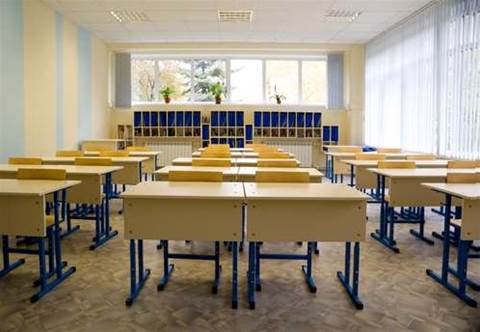The NSW Department of Education & Training expects to become a bigger user of Windows 7 than Microsoft by the end of the first quarter next year, its chief information officer has said.
Speaking at the Realising our Broadband Future forum, NSW DET CIO Stephen Wilson said the Department had “rolled out 82,000 laptops in four months with Windows 7.”
He said the DET was unboxing and wirelessly commissioning up to 2,800 laptops on any one day as part of the Federal Government’s digital education revolution scheme.
“I think we’ve exceeded the rollout of any computer installation [for Windows 7] anywhere in the world,” Wilson said.
“I’m told Microsoft have more than 82,000 users of Windows 7. We’ll eclipse Microsoft in the first quarter of next year.”
Wilson outlined the NSW Department’s ambitious target of a total cost of ownership for each device of $2,240 over a four-year period.
The price included wireless internet access, “all software, onsite support, procurement and servicing of the device”, he said.
“We’re on budget to do that,” Wilson said. “It will be a very very cheap total cost of ownership.”
Despite the success of the project to date, Wilson expressed his disappointment that many questions he received from journalists about it revolved around “how many [new computer owners] had been suspended” or “how many students had downloaded movies in class”.
“When you roll out 82,000 laptops some bad things are going to happen,” he said.
“How about asking us how many students have learned new skills or how many communities have got their first computer [because of this program]? These are questions I’d like to be asked.”
Wilson defended the DET’s decision to put Apple's iTunes on the laptops, believing it could be used to access “a tremendous amount of education content” as well as allowing students to download legal music and relax to it in their own time.
Varying technology
Wilson told delegates that he was dismayed by the variances in technology use between schools when he first joined the department as CIO.
“I’d go out and people would show me how their school had done this or that. Then I’d go to the next school and it was completely the opposite,” Wilson said.
“I’d see a Year Five class with their laptops not plugged into the wall have to hand them back to a trolley [at the end of the class]. Then I’d see another Year Five class get access to a computer lab once every two weeks.”
Is 100 Mbps enough?
The breakout session that Wilson participated in also raised the potential that the 100 Mbps speeds proposed by the NBN should be considered the “bare minimum” for the education sector.
“Is the NBN the Government is preparing to roll out going to be enough in three years time to take schools who are on 100 Mbps up and down[links] to the next level?” he said.
He said schools had gone from 2 Mbps connections to up to 100 Mbps in the time he had been CIO of the department.
Wilson believed the 100 Mbps to a gigabit connection would happen for schools “in the next five years” and questioned whether the NBN would be able to support that growth.
Dr Evan Arthur, group manager of the Department of Education, Employment and Workplace Relations, believed the education sector needed to ensure full integration into the NBN development process to ensure its future requirements were met.
He said the sector’s needs were “different to household users”.
“There needs to be a process whereby we feed into [the NBN development discussion],” he said.
NSW Education to trump Microsoft on Windows 7 use
By
Ry Crozier
on Dec 11, 2009 3:03PM

Got a news tip for our journalists? Share it with us anonymously here.
Partner Content

Beyond the box: How Crayon Is Redefining Distribution for the Next Era
_(21).jpg&h=142&w=230&c=1&s=1)
Empowering Sustainability: Schneider Electric's Dedication to Powering Customer Success

How Expert Support Can Help Partners and SMBs Realize the Full Value of AI
.png&h=142&w=230&c=1&s=1)
How mandatory climate reporting is raising the bar for corporate leadership

MSPs with a robust data protection strategy will achieve market success






.jpg&w=100&c=1&s=0)
_(8).jpg&w=100&c=1&s=0)











